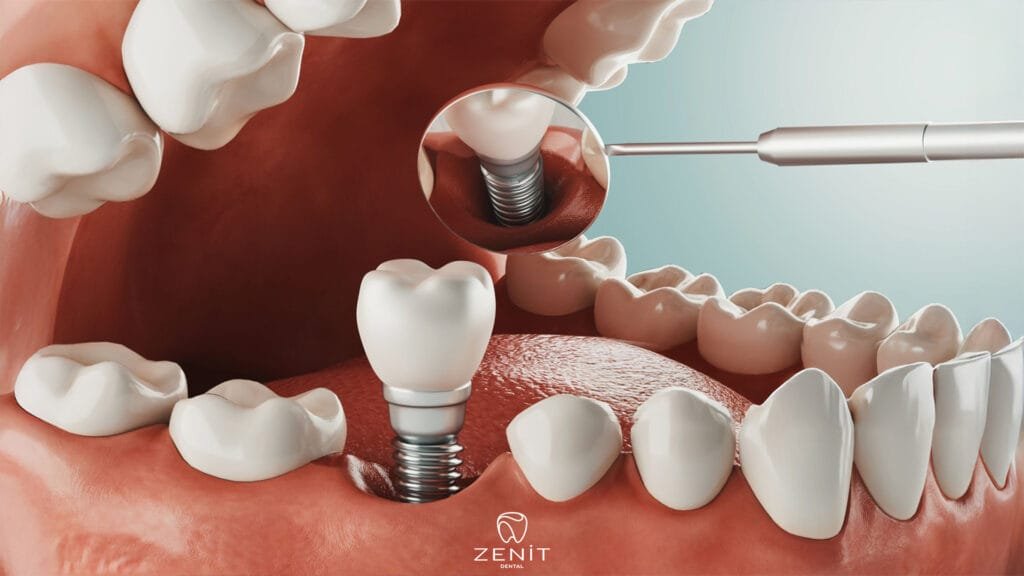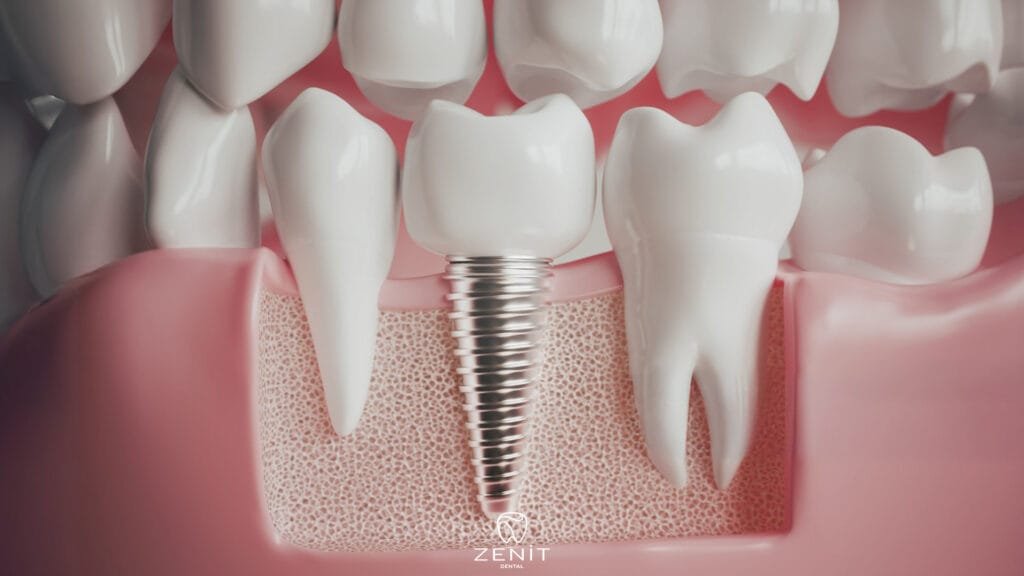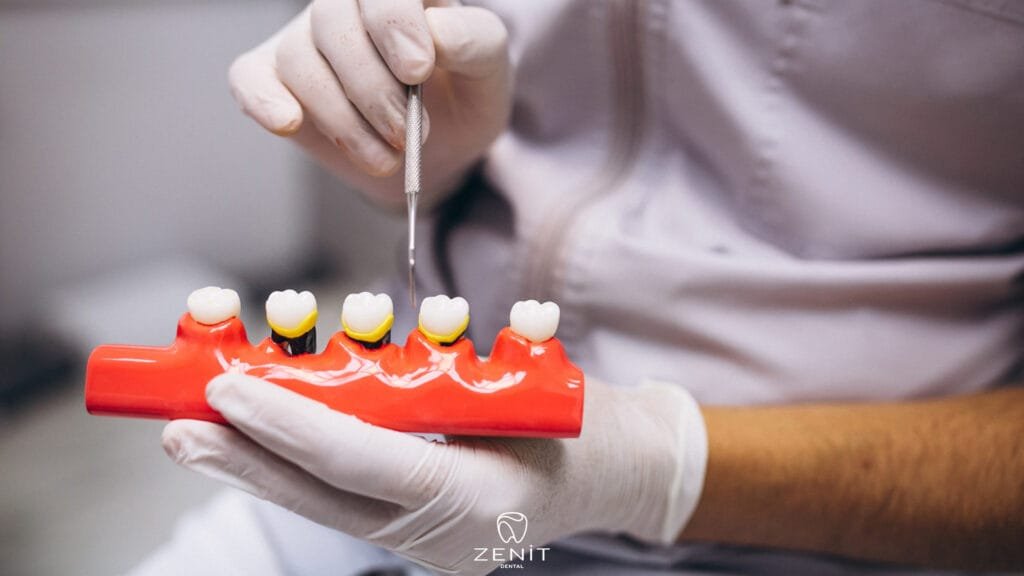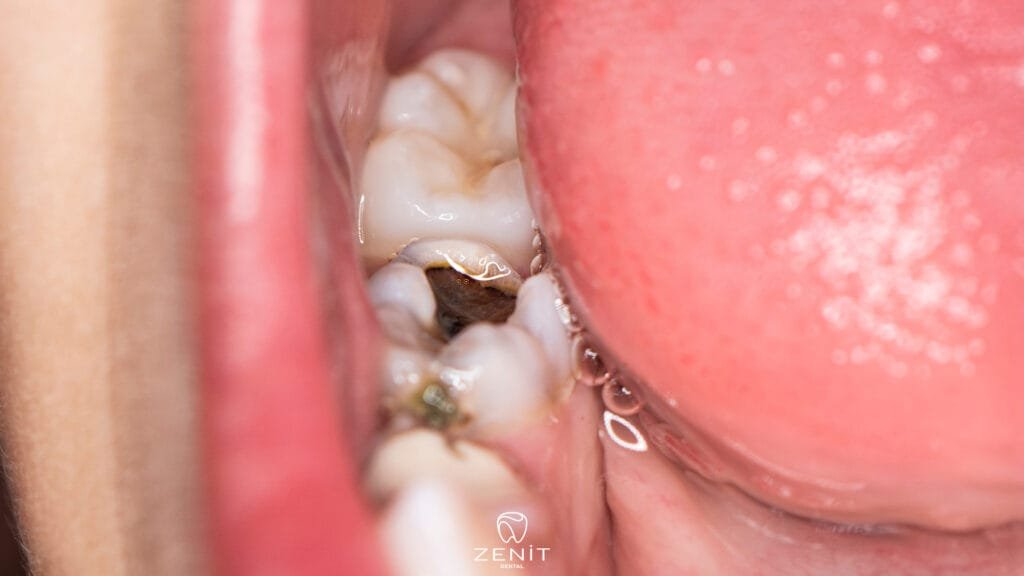Can Diabetics Get Implants?
For many people experiencing tooth loss, implant treatment stands out as one of the most effective and permanent solutions today, both in terms of aesthetic appearance and function. Replacing missing teeth with a structure as close to natural teeth as possible, implants offer a comfortable fit, significantly improving the quality of chewing, speaking, and smiling. However, when it comes to their health, some patients may approach this treatment with questions. Especially when it comes to a common condition like diabetes, which requires lifelong management, the question “Can I have an implant?” is frequently raised.
This is because the effects of diabetes on the body can directly affect the healing process and the success of the implant. This is precisely why implant treatment for diabetics is a topic of both curiosity and careful consideration.
The Relationship Between Diabetes and Oral Health
While diabetes may seem like a condition solely related to blood sugar, it’s actually a chronic disease that affects nearly every part of the body. Persistently high or irregular blood sugar levels negatively impact overall health and can have significant consequences on oral and dental health.
People with uncontrolled diabetes experience certain oral problems more frequently. For example, because the body’s tissue healing process is slowed, wounds in the mouth can take longer to heal. This makes recovery, especially after surgical procedures, more difficult. Furthermore, because the immune system is weaker in diabetes, the risk of infection is much higher than normal. This can lead to increased risk of gingivitis and oral infections.
Another important consideration is gum health. Diabetes increases susceptibility to gum disease. When blood sugar levels are uncontrolled, symptoms such as redness, swelling, and receding gums are more common. Furthermore, diabetes negatively impacts the jawbone and can accelerate bone loss, leading to loosening or even loss of teeth.

For all these reasons, diabetic patients require extra care and attention when considering surgical procedures such as implants. The likelihood of implant success is directly related to the patient’s overall health, particularly blood sugar control.
Can Diabetics Get Implants?
The answer is actually reassuring for many: Yes, implants are available for diabetics! But there’s a crucial point to emphasize: The situation isn’t the same for everyone with diabetes.
If your diabetes is regularly controlled, you follow your doctor’s prescribed treatment, and your blood sugar levels are stable, there’s generally no obstacle to benefiting from implants. In fact, many diabetics who meet these criteria are now receiving a healthy and aesthetic solution for replacing lost teeth with implants.
On the other hand, the risks increase for people with persistently high blood sugar and uncontrolled diabetes. This slows down the healing process, increases the risk of infection, and reduces the likelihood of the implant fusing to the jawbone. This naturally increases the likelihood of treatment failure.
So, in summary, having diabetes doesn’t preclude you from getting implants, but the most critical factor for success is keeping your blood sugar under control. Therefore, it’s crucial for diabetics considering implants to work closely with both their dentist and endocrinologist.
Things to Consider Before Implant Treatment
Dentists always consider certain important factors before planning implants for diabetic patients. Every patient’s overall health is different, and certain conditions must be met for the treatment to be successful.
Blood sugar levels are the primary criterion. Dentists typically examine fasting and postprandial blood sugar levels, as well as the HbA1c test, which indicates blood sugar control over the last three months. A level below 7% is considered safer for implants.
Another important consideration is oral and dental health. If there is active gum disease or an infection in the mouth, these issues should be treated first. In an unhealthy environment, the likelihood of implants securing implants is significantly reduced.
The condition of the jawbone is also a determining factor in treatment. The bone must be strong and sufficient to support the implant. Additional treatments can be used to provide bone support if necessary.
The patient’s general health is evaluated. Medications, immune system health, and any other chronic conditions other than diabetes are also taken into account. This allows for the most appropriate implant treatment plan.

Risks of Implants in Diabetics
While the risks of implant treatment in diabetics are not completely eliminated, the success rate is quite high when managed consciously. Potential risks include:
- Infection risk: Wound healing can be slow, increasing the risk of infection.
- Osseointegration problems: The process of the implant fusing to the jawbone may be slightly slower in diabetic patients.
- Peri-implantitis: The risk of inflammation around the implant is high if diabetes is uncontrolled.
What Should Diabetics Do Before Getting Implants?
If you have diabetes and are considering implants, the following steps are crucial:
- Keep your blood sugar under control. Follow the diet and medication prescribed by your doctor.
- Have your blood levels checked regularly. Your HbA1c result is especially important for your dentist.
- Strengthen your gum health. Have your tartar removed and any infection treated.
- Quit smoking if you smoke. Smoking negatively impacts both diabetes and implant success.
- Maintain good oral hygiene. Regular brushing, flossing, and antiseptic mouthwash are crucial.
What Should You Pay Attention to After Implant Implantation?
The success of implant treatment for diabetics doesn’t end with the surgery; the aftermath is just as important.
- During the recovery period, take the antibiotics and medications prescribed by your doctor regularly.
- Avoid very hot or very cold foods in the first few days.
- Eat soft foods.
- Do not skip regular checkups.
- If you notice redness, swelling, or pain around the implant, consult your doctor immediately.

The Advantages of Implants for Diabetics
Being diabetic doesn’t mean you have to miss out on a healthy and aesthetically pleasing smile. Implant treatment:
- Your chewing comfort increases.
- You achieve a more natural appearance.
- Neighboring teeth remain unharmed.
- Your self-confidence increases.
- You receive a long-lasting solution.
For more detailed information and to schedule an appointment, click here and fill out the form now.





